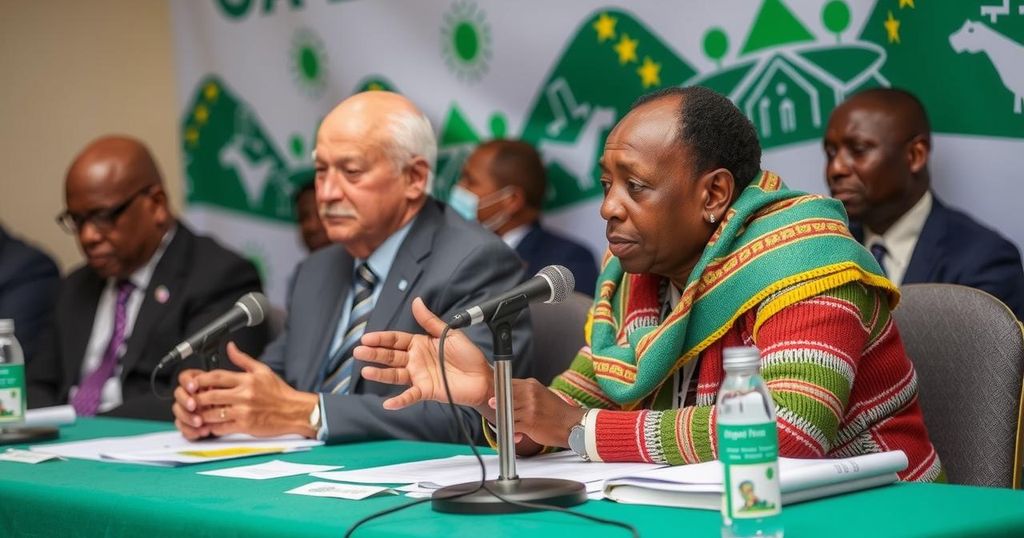UN Chief Guterres Calls on Wealthy Nations to Honor Climate Finance Commitments in Lesotho

During a speech in Lesotho, UN Secretary-General António Guterres urged rich nations to meet their climate finance commitments and help developing countries face the challenges of climate change. He emphasized the urgent need for the newly created Loss and Damage Fund to provide financial resources for vulnerable nations. Guterres addressed the severe drought impacting Southern Africa and advocated for Africa’s representation in the U.N. Security Council.
On Thursday, United Nations Secretary-General António Guterres addressed the Parliament of Lesotho, calling on affluent nations to fulfill their climate finance commitments to assist poorer countries in combating climate change. During his two-day visit to the mountainous kingdom, Guterres focused on the pressing need for financial support required by developing nations facing the severe impacts of global warming, despite Africa contributing minimally to the problem. He reiterated the need for developed countries to honor their agreement from recent U.N. climate talks, which stipulated at least $300 billion per annum to aid these nations.
Guterres emphasized the urgent necessity for the newly established Loss and Damage Fund, which is intended to mitigate the repercussions of climate-induced disasters in poorer regions. As Southern Africa grapples with one of its most severe droughts, he articulated a concern that this crisis, impacting over 27 million people, was exacerbated by climate change phenomena, including El Niño. Guterres highlighted that many African nations are experiencing significant economic losses, with up to 5% of their GDP vanishing annually due to climate-related issues.
During his address, Guterres also expressed hope for enhanced African representation at the U.N. Security Council, advocating for permanent seats for the continent. He condemned the absence of African representation on the council as an enduring injustice and a legacy of colonialism, declaring such a situation unacceptable in the modern world. Guterres’s visit included plans to inspect the critical Katse Dam, part of the project aimed at managing Lesotho’s water resources and alleviating neighboring South Africa’s water scarcity.
The issue of climate finance remains a contentious topic, particularly regarding the disparity between commitments made by wealthier nations and the actual funds disbursed. At recent U.N. climate conferences, developing nations have called for a substantial increase in financial aid to combat the effects of climate change. Lesotho, a landlocked country in Southern Africa, epitomizes the challenges faced by many nations in the region, which are disproportionately impacted by climate-induced disasters despite their minimal contribution to global emissions. The ongoing drought and associated hunger crisis further underscore the urgent need for international support and collaboration in addressing climate-related vulnerabilities.
In his speech, Secretary-General António Guterres underscored the critical importance of fulfilling financial commitments made by developed countries to support poorer nations in their climate change efforts. The acknowledgment of Africa’s plight amidst global discussions on climate action highlights the urgent need for advocacy and support structures. As Guterres continues his efforts to enhance African representation in global decision-making arenas, the interconnected issues of climate finance and representation underscore the evolving dynamics in international relations regarding climate justice.
Original Source: abcnews.go.com






